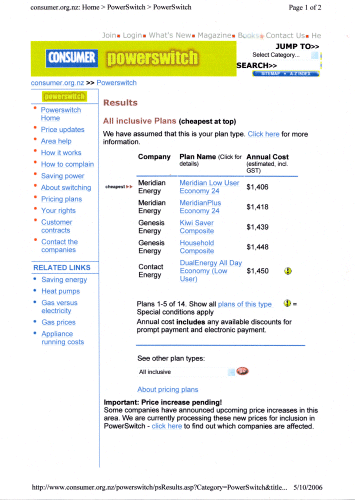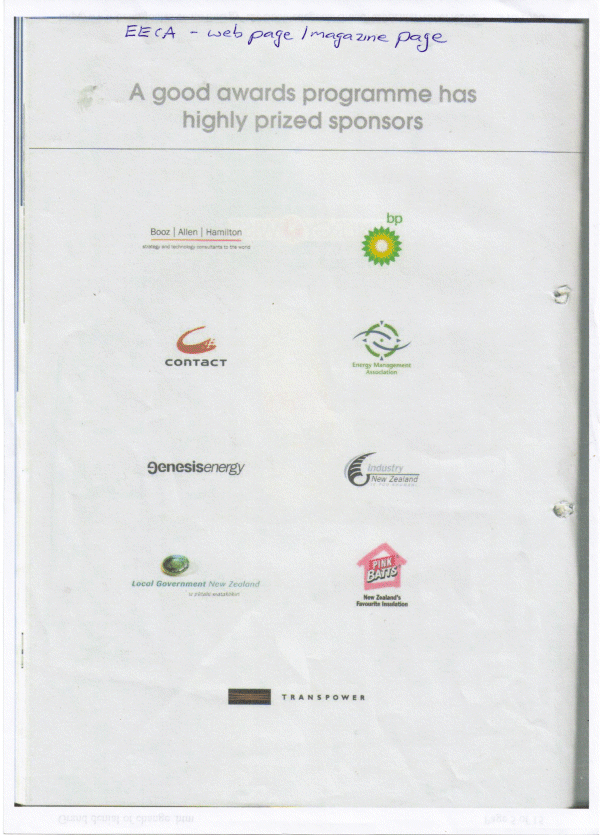| David
Parker Presentation (NZ Consumer Institute Propaganda etc) |
|||||
|
Return to presentation to NZ Minister of Energy & Climate Issues
|
Principle of energy: “When a symbol use works to deny change it will materially alter the potential of the universe (energy) in a way that results in a reduction in the capacity of the symbol user to mirror reality. When a symbol use works for the acceptance of change it will increase the capacity of the symbol user to mirror reality.” Denials of change: (1) The NZ Consumers Institute
website defines both power and energy as Bulk-generated electricity.
This page alone contains 15 examples of redefinition. This confusion of
energy/power with their forms denies the transformation basis of the
Principle of the Conservation of Energy. (2) The website denies that energy
and power are conserved by suggesting humans can save power and energy. General note: There was
insufficient time to elaborate fully on the following to the Minister of
Energy. The NZ Consumers Institute places
zero value on environmental and social factors. The only consideration
is the retail cost of the product. It thus directly penalises companies
that invest in low risk generation e.g. low carbon operations and
non-nuclear plant. It also penalises companies that invest according to
sustainable principles e.g. that invest in insulation, smart technology
etc for their customers to reduce demand for Bulk-gen electricity. In
other words, the Consumers Institute is concerned only with the
promotion and sale of Bulk-gen electricity, not the impacts of its use. The website also works directly for
the bankers of the Bulk-gen electricity sector and is fundamentally
hostile to alternative uses of electricity such as dwelling scale
generation. It does this by (1) defining power and energy as Bulk-gen
electricity and (2) by promoting the lie that Note of explanation: Contrary to the Consumer's Institute's claims that it is an independent company which does not accept money or sponsorship, the Institute receives large funds to maintain this site. Effectively it is a front for the small group of people that benefit from the Electricity Reforms. For more discussion click here. Use back button to return. Click on illustration to visit NZ Consumers Institute The following illustration is from
the New Zealand Government's Energy Efficiency and Conservation
Authority (EECA) and shows how its contents are framed to serve the
interests of large corporations. There was not sufficient time to
explain its fuller implications to the Minister. The institution is in profound
denial of the Principles of energy, beginning with its title which
states that humans can conserve energy. This flawed vision is reflected
in its general culture and EECA defines, for instance, energy
efficiency as using less energy. This confuses energy with the forms it
takes. The reality of the Principles of Energy is that it does not
matter how much energy we use but rather that we use energy forms in
such a way that sustaining balances are maintained.
Return to 2006 Presentation to NZ Minister of Energy & Climate Issues |
|
|||


